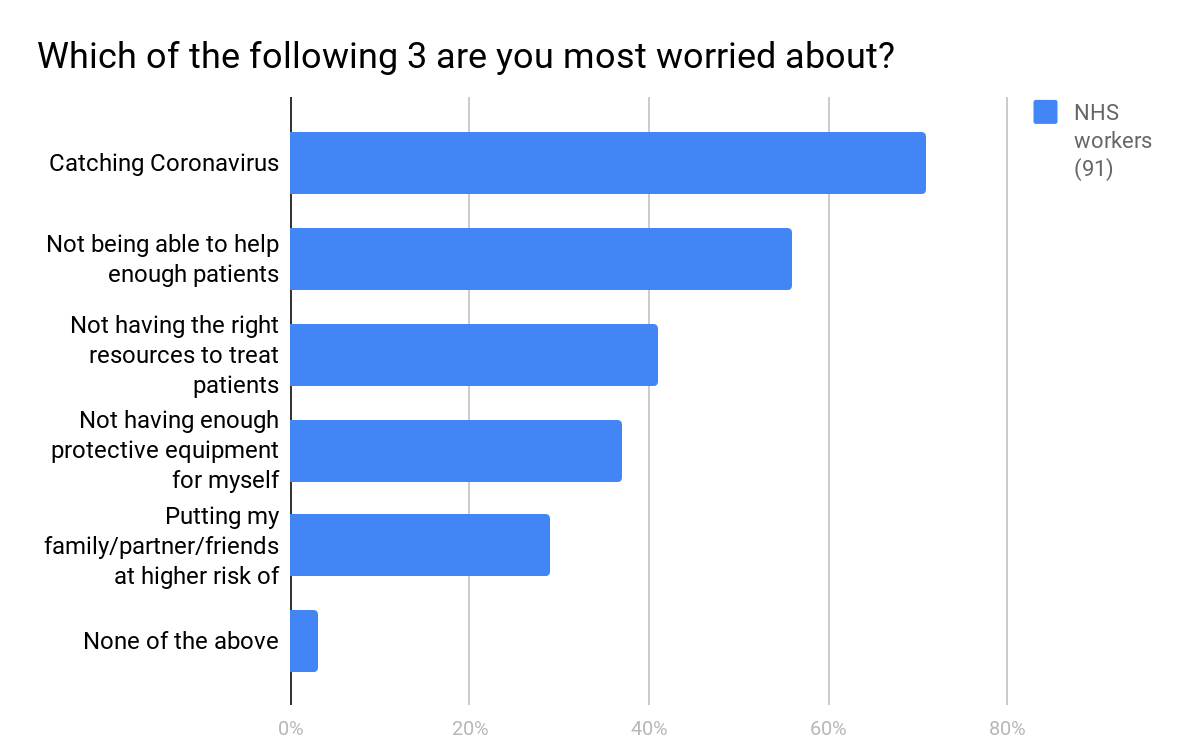
Seeking medical advice since COVID-19 (part two)
Seeking medical advice since COVID-19 (part two) https://www.citizenme.com/wp-content/uploads/2020/03/imageLikeEmbed.png 1200 742 Shaun Richards https://secure.gravatar.com/avatar/a8ce564a017acc0ef1de7902096f812d?s=96&d=mm&r=gUsing the CitizenMe platform, we went out to our COVID-19 community, which is an open-data research project designed to enable the world’s citizens to share real-time opinions and data about COVID-19 with the institutions fighting the pandemic.
Question: Do you currently take any regular medication for any underlying medical condition?
Key results:
- The older you are, the more likely the need to take regular medication for an underlying medical condition;
- Since the COVID-19 outbreak, those who take regular medication for an underlying medical condition say they are –
- More likely to be struggling to get prescriptions
- More likely to have canceled appointments
- More likely to struggle to get an appointment
- Those who are taking regular medication for any underlying medical condition have tried to contact their Local GP more than compared to the average (36% vs 22%). They are no more likely to call 111 though.
Question: Are you one of the 1.5M UK citizens that have been contacted by the NHS/local authorities and told to isolate (stay indoors) for a period of 12 weeks?
Key results:
- There is around 10% (134) of our sample who say they are one of the 1.5M UK citizens that have been contacted by the NHS/local authorities and told to isolate (stay indoors) for a period of 12 weeks;
- 80% of this group say they have been allocated correctly, with 16% saying they have not;
- However, within this group only 52% say they are confident in the NHS/Local authority providing them with full support through these difficult times;
- This group is twice as likely than average to have called 111 (21% vs 10%);
- This group has less disagreement for ‘there is enough protective equipment available for NHS workers’ (65% vs 76%);
- This group also agree more that ‘the Government is doing enough to support NHS workers’ (35% vs 30%).
NHS staff
- Around 6% (91 people) work within the NHS
- This is what they are worried about (note, the list can be expanded if not felt reasonable):
- Those who work in the NHS as a whole actually have more agreement/less disagreement on if there is enough protective equipment available for NHS workers – disagreement 64% vs 76%. HOWEVER, nurses are contrary to this with 85% in disagreement. Please note, nurse base low at 34;
- The same trend is seen in the statement that the Government is doing enough to support NHS workers.
Types of people who agree/disagree with “is there enough protective equipment available for NHS workers?”
- Males are less likely to disagree with this statement compared to females (67% vs 80%); perhaps owing to males having a more ‘macho’ approach to COVID-19?;
- Those who are within the 1.5M UK citizens that have been contacted by the NHS/local authorities are less likely to disagree with this statement compared to all citizens (67% vs 76%); perhaps these individuals have had firsthand experience in being treated with personal protective equipment (PPE) on show;
- Those who are more neurotic have a greater disagreement with the statement compared to all citizens (83% vs 76%). Those who tend to worry more are feeling more worried about this subject. This could have an effect on how they might interact with medical professionals;
- Those who have higher emotional intelligence have a greater disagreement with the statement compared to all citizens (91% vs 76%). Those who can manage their feelings better, and know what they are feeling, are picking up on the issues around PPE.


